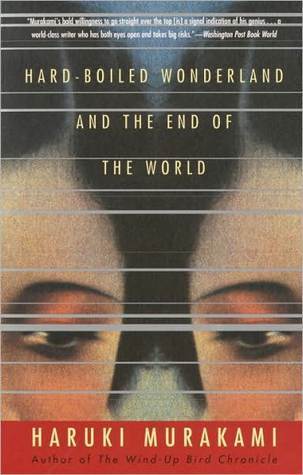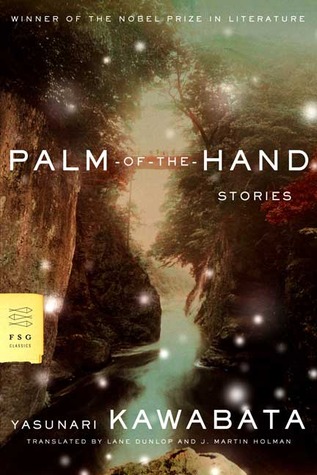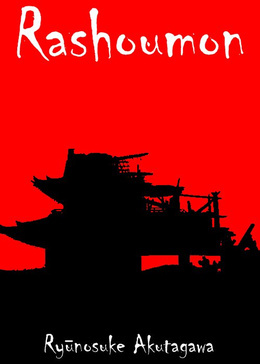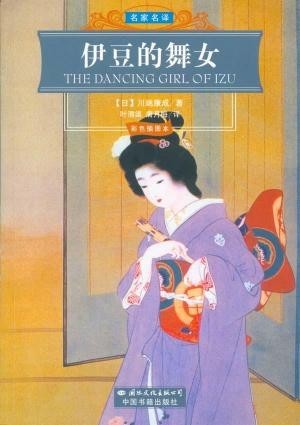Rating: ★★★★
LXXXV
They say that “time assuages”,—
Time never did assuage;
An actual suffering strengthens,
As sinews do, with age.
Time is a test of trouble,
But not a remedy.
If such it prove, it prove too
There was no malady.
*
Everything passes. (169)
A gentle breeze brushes the branches of luxuriant trees brimming with cherry blossoms which surround the quaint park bench I chose as my reading spot. A diaphanous cloud softly attached to the sun creates the sensation of being part of a watercolor painting bound to become the antithesis of an actual winter day. Away from the bustle of an anonymous city, from the thoughts that keep accumulating after roaming awkwardly around the mind, trying to repress relentless pangs of sadness. The only sound I would like to hear is the one pages make as they silently turn in order to unfold this heartrending story; one page after the other, reverberating through the Gardens, ensuring the quietude which, by virtue of a book's mere presence, clears my mind completely. If only for a few hours. Or for the briefest minute unable to last sixty wretched seconds.
I wonder if I have actually been happy.
No Longer Human, published in 1948, is a timeless piece of writing that portrays the sense of disqualified as a human being.
isolation of Oba Yozo, a confused child who became a troubled man; roughly, a deceitful person unable to show his true nature to most people, a man
The book is mostly composed of three memoranda; the last one is divided into two parts. Dazai interwove significant personal experiences into his writing; it was somewhat striking to identify those autobiographical aspects as I read our tormented protagonist's story.
The first memorandum is about Yozo's childhood. From an early age, he felt overwhelmed by a profound sense of alienation, which was increased by the presence of his overbearing father. In the end, incapable of understanding human beings, confused by their selfishness and artificial personalities, he steps into the world and becomes another unauthentic person, begetting the perception of having a jocose and amusing manner in the eyes of people around him. In his mind, such farce was the only way he could find to face the creatures he feared the most: humans. As these attempts take place, he ends up harboring a feeling many of us are familiar with but, in another display of egotism triggered by human condition, perhaps the limitations of our surroundings, we tend to think we are the only ones feeling that way.
All I feel are the assaults of apprehension and terror at the thought that I am the only who is entirely unlike the rest. It is almost impossible for me to converse with other people. What should I talk about, how should I say it? – I don't know.
I could connect with some of Yozo's reflections, naturally. I am not someone who immediately trusts in people, especially after many close encounters with disappointment. In that sense, I understood completely the character's reasons for keeping his agonies locked in his chest, imbued with a persistent sense of mistrust. Nevertheless, I could never endorse his absolute insincerity towards everybody. It is impossible not to take this book to everyday life; how distressing it must be to interact with someone so irrationally fearful and indecisive, unwilling to respond when another person tries to reach out, incapable of seeing his ability to actually love. Yozo's feigned emotions, which culminated with the perfect role of the farcical eccentric, somehow shielded the people who cared about him from his recurrent fears, though the element he chose to protect himself (and them, who knows) was deception.
The second memorandum is mostly about the continuation of Yozo's self-destructive behavior, which by then included excessive drinking, smoking and many encounters with prostitutes (to whom he dedicates some degrading observations). Until he finds a woman who makes him feel, for the first time, as if he had freed himself from fear and uneasiness. He didn't feel the need to hide his gloomy disposition. Unfortunately, things rapidly started to go awry.
The weak fear happiness itself.
Even though he had many love affairs, one thing did not change: he was equally cruel to all women who cared about him
(view spoiler)[(to the point of witnessing the rape of his own wife and not thinking for a second about helping her; yup, a good fella – great movie, by the way). You may blame it on his father, on his “friends” who took advantage of him, on another sad anecdote from his childhood; you name it (hide spoiler)]. The seemingly cogent arguments and plausible excuses to justify his actions are infinite. In any case, the results were indelible wounds and irreparable consequences.
“You look like someone who's had an unhappy childhood. You're so sensitive–more's the pity for you.”
That same memorandum also reflects the conflicts that are present in human relationships in the context of an adverse socio-economic status. At one point, the humiliation of not being able to provide for a woman was insufferable; the last straw that culminated in another mistake.
The third memorandum chronicles the protagonist's late twenties.
Several ambivalent feelings arise from reading about a character such as Yozo. I was able to comprehend some of his fears and his genuine sense of alienation, though other times I saw him as an inconsiderate man who epitomized cruelty and selfishness.
After a life of lying to himself and to others, Yozo chooses to write about his miseries and atrocious acts without a shred of falseness. Without resorting to any sentimentality – in contrast to his entire existence, his notebooks do not try to please anyone – he tells his story without engaging in unavailing circumlocution, elegantly gliding to the brink of brutal honesty as he circumvents every rule of an ostensibly civilized world. Despite the stark writing style which predominated in the novel, Dazai endowed it with not only plentiful profound meditations which may resonate with many readers around the globe, but with an exquisite language reminiscent of wistful fragments of poetry written in some bleak hotel room. There is no rhapsody of praise to nature, no writer simply extolling the virtues of silence. This novel is a one-way ticket to a person's psyche. Indubitably, a memorable journey since Dazai's words might linger in the vicinity of one's mind for far too long.
Unhappiness. There are all kinds of unhappy people in this world. I suppose it would be no exaggeration to say that the world is composed entirely of unhappy people. But those people can fight their unhappiness with society fairly and squarely, and society for its part easily understands and sympathizes with such struggles. My unhappiness stemmed entirely from my own vices, and I had no way of fighting anybody... Am I what they call and egoist? Or am I the opposite, a man of excessively weak spirit? I really don't know myself, but since I seem in either case to be a mass of vices, I drop steadily, inevitably, into unhappiness, and I have no specific plan to stave off my descent.
Selfishness or a weak spirit. I am not in the position to ascertain to which of those personalities Yozo belongs. Recently, I stumbled upon a quote by Jane Austen (which can be found in her novel
Mansfield Park) that makes me ponder his situation, since it states the following: “Selfishness must always be forgiven, you know, because there is no hope of a cure.” In that context, Austen only refers to selfishness; she is not as bold as one M. de Norpois (I just met him so I still don't know what to think of him) who declared once that for every sin there is forgiveness.
We all carry within us some degree of egoism – in fact, it can be seen as another defense mechanism regarding the protection of one's heart; I should know. But of course, some humans are replete with it. So much so that sometimes they might seem incapable of feeling pain, as they might do everything in their power to avoid it, regardless of the pain they are inflicting on others. To me, Yozo's case is somewhat paradigmatic; he relied on his antics to deceive people – and thereby being able to deal with them – instead of turning to superficially veracious words he never meant to say or a perpetual pusillanimous silence. Either way, Yozo suffers; he is not a pretender who thinks that being unable to fit into society is something that makes him special. It makes him truly unhappy. However, fighting for our existence is certainly not impossible; as a matter of fact, it is a more reasonable plan than sitting comfortably, feeling miserable and just waiting for the world's gaping maw to tear us apart.
I thought, “As long as I can make them laugh, it doesn’t matter how, I’ll be alright. If I succeed in that, the human beings probably won’t mind it too much if I remain outside their lives. The one thing I must avoid is becoming offensive in their eyes: I shall be nothing, the wind, the sky.”
Unlike Austen, I can't say for sure that there is no hope of a cure. The idealistic within me, breathing optimism and naivety daily, will claim that there is. The cynical within me, a little bruised due to some unpleasant experiences in life, will guarantee that, in reality, there is no remedy for such unfortunate malady. Despite this state of uncertainty, I agree with the first part of Austen's statement; we should forgive. As Dickinson's poem continues to echo in my head, the thought that time alone doesn't heal all wounds resounds just as much; indeed, it is what we do with that time that may alleviate certain symptoms. Forgiveness is an active way to deal with anything that once caused a small cut or unfathomable pain. It is not only part of a process which is essential to avoid hardening one's heart, it is also a humane way to treat others, even those whose actions leave a bittersweet aftertaste, even if I am not forgiven. Not that the world needs my foolish perspectives in the form of endless paragraphs of little merit, of course, but I for one choose to forgive, and that decision is made taking into consideration, among other things, the possibility that such cure, in fact, does not exist. I wouldn't want to magnify the weight of the cross that some people have to carry around, for the absence of said remedy might be already too harsh a punishment.
I turn the last page and the previous luminous scenery metamorphoses into a typical winter day. Storm clouds are already appearing above the horizon; they will soon cover these empty cherry trees, and me. I walk back home, trying not to think about the intense sky's azure, the park bench, the limpid lake I never mentioned, the cherry blossoms, the tragedy of being no longer human. Trying not to think.
Indomitable thoughts.
* Photo credit: Book cover via Goodreads.

























